VIPsight - August 2012
COMPANIES
-COMING SOON-
Buhlmann's Corner
Is the world that way, OR is it just people that are?
 Finally someone has said it, finally someone had the courage. Now quick, get to work and implement it! Or rather, think about it?
Finally someone has said it, finally someone had the courage. Now quick, get to work and implement it! Or rather, think about it?
Nikolaus von Bomhard, boss (CEO) of the world’s largest reinsurer MunichRe (Münchener Rückversicherungs-Gesellschaft AG) and someone I esteem, hesitated a little and then clearly and audibly stated: there is a higher intelligence with which banks can be divided.... He said the goal was to avoid anything “too big to fail”. Well said, and (almost) everyone was happy – now why is no one doing anything about it?
The economy minister in Bomhard’s Land, the experienced Philipp Rösler, will surely immediately have called him. “I’ll see to it,” he will have told him, “but first I have two questions:
-
MunichRe is the biggest reinsurer. Earlier there was a bigger one, which my colleague in the U.S. rehabilitated so that the banks would do well again; but the creditors, shareholders and the public debt exploded. Can that happen to a SwissRe or a MunichRe too – if necessary, through the Federal Ministry of Economics and Technology, I’ll solve the problem in one go?
-
MunichRe is clearly structured: there is a substantial reinsurance business and also a repeatedly vociferous primary insurance business – perhaps both together make a “too big to fail.” Or, the Minister asks the executive, have you made the separation proposal just because of bad experiences at home? I could settle that too, almost by the way.
Once the Minister has initiated his legal colleague (the women’s quota, in the Federal Ministry of Justice), both ponder the question of “small enough to fail”. Already in their mental journey they have arrived at Zorneding, southeast of Munich. Raiffeisen Bank Zorneding eG is a good destination: the website tells little and sells everything (savings, insurance and even credit, but no balance-sheet data – just like a good bank should). Especially since the total assets of nearly €400 million not only fit into a ministerial budget, but even a lady minister’s budget. We’re safe here then, the Ministers assure us and each other: neither of us can help the ThyssenKrupps of this world in Brazil without asking the government first! Zorneding is the goal ....
The Zorneding board is immediately called, and as an exercise is to help determine the Libor, starting tomorrow. Shyly they ask on the phone how it works – but the Minister of Justice can quickly reassure them, because the Chancellor has explained it to her: no one used to know, and all had relied upon all-round decency as the only systemic control. Only now it had been found that for years the entire financial world had believed something that came from a handful of unknown traders, everyone was disappointed that these had at times been in contact with each other and pursued interests of their own – yet the system was designed so beautifully, the Chancellor had told her! So the Libor will soon be coming from Zorneding, and the two directors Martin Schottenheim and Oliver Brandhuber will provide the same regulator-free lack of transparency as in “the good old Libor times”. Minister Rösler is already working on the renaming of the Libor as Bibor – because Zibor is already a medical brand name and Bibor will finally put an FDP mark on the CSU State of Bavaria....
It is even optimally prepared, since the Deutsche Bank already has its twin-header on the board – that should make a split less painful. And the MunichRe executive is right to contribute his opinion to the shareholders’ meeting with his share votes. Is it not even a duty in the interests of MunichRe and its customers?
How good would the world be if more than only 34% of the owners at the Deutsche Bank helped decide, and if someone finally got upset that in Spanish AGM minutes 103% of shareholders are logged “present” by a notary? Where are the shareholders demanding responsibility for discharge from the managers, and asking:
What did the ThyssenKrupp Supervisory Board know about Brazil?
What has the BP Supervisory Board contributed to safety?
What has the Commerzbank Supervisory Board contributed to strategy?
What has the Glencore Supervisory Board.....
Why was the Supervisory Board of MAN elected in 2011 with 51% abstentions?
It is better that we begin to build, rather than break up. Start that, my dear Mr von Bomhard! Demonstrate the responsibility as a shareholder which I ascribe to you as a person and a CEO – bring all the voting shares under your responsibility to the meeting. Talk of responsibility, but also act with responsibility – just imagine, it’s AGM and the shareholders come ... all of them, reliably and error free.
ACTIONS CORNER
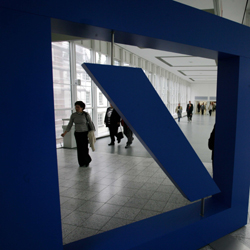 In the scandal surrounding Libor interest-rate manipulations the Deutsche Bank has come under the scrutiny of the Federal Financial Supervisory Authority (BaFin). The Authority is therefore doing a special audit at the bank. The biggest German bank officially points only to the fact that it is working together with the authorities because of questions about inter-bank interest rates between 2005 and 2011. In this context, Metzler Investment GmbH, a subsidiary of Metzler Bank, has together with other investors filed a lawsuit at a New York court. Metzler Bank and other investors have accused a total of 15 large banks of keeping the Libor rate artificially low during the 2007-2010 financial crisis.
In the scandal surrounding Libor interest-rate manipulations the Deutsche Bank has come under the scrutiny of the Federal Financial Supervisory Authority (BaFin). The Authority is therefore doing a special audit at the bank. The biggest German bank officially points only to the fact that it is working together with the authorities because of questions about inter-bank interest rates between 2005 and 2011. In this context, Metzler Investment GmbH, a subsidiary of Metzler Bank, has together with other investors filed a lawsuit at a New York court. Metzler Bank and other investors have accused a total of 15 large banks of keeping the Libor rate artificially low during the 2007-2010 financial crisis.
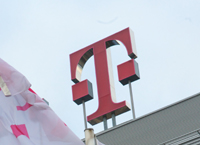 Telegate has finally prevailed against Deutsche Telekom in two of its three actions for damages. The Federal Court of Justice dismissed the complaints of inadmissibility by Telekom against two judgments of the Düsseldorf Higher Regional Court (OLG), both companies announced on 19 July. Hence, the OLG judgment of 13 April 2011 is final. From the two actions brought by datagate GmbH and telegate MEDIA AG for damages for excessive data costs, claims arise for a total of around €47 million including process interest. This repayment amount will still be reduced by tax expenses and profit-related payments.
Telegate has finally prevailed against Deutsche Telekom in two of its three actions for damages. The Federal Court of Justice dismissed the complaints of inadmissibility by Telekom against two judgments of the Düsseldorf Higher Regional Court (OLG), both companies announced on 19 July. Hence, the OLG judgment of 13 April 2011 is final. From the two actions brought by datagate GmbH and telegate MEDIA AG for damages for excessive data costs, claims arise for a total of around €47 million including process interest. This repayment amount will still be reduced by tax expenses and profit-related payments.
The European Court of Justice (ECJ) concluded in its judgment in the E.ON and Suez case against the EU Commission that the fines imposed three years ago for carving up the French and German gas markets were far too high. The sentences of €553 million each have accordingly been lowered to €320 million for the two utilities. Although the Court confirmed the decision in the main, it notes however that the assessment of the duration of the infringement on each of the markets by the Commission was in error. Between 1980 and 1998 absolutely no competition could have developed, because of regional monopolies.
The Bundesgerichtshof (BGH) on 10 July quashed last year’s judgments of the Frankfurt Higher Regional Court on the awarding of consulting assignments to supervisory-board members and the non-discharge of the top management of Fresenius SE at the 2009 AGM. The latter was decided to the detriment of Fresenius, said the BGH. In her appeal against the discharge decisions Gabriele Kröner had criticized conflicts of interest, because mandates were awarded to the Noerr law firm, where the then supervisory-board member Dieter Schenk is a Managing Partner. The appeals court must now retry the case.
 In the dispute between METRO and Erich Kellerhals the Munich Higher Regional Court (OLG) declared on 21 June in its preliminary legal opinion that it did not have jurisdiction, and referred the two parties to an arbitration tribunal appointed by themselves. At the same time, the Court urged the Düsseldorf commercial group and the minority shareholder of Media-Saturn-Holding (MSH) to reach a compromise. Although the arbitration court had not yet arrived at a verdict on 24 July, it announced that it would by the beginning of August. On 9 August the OLG will also give its opinion. Kellerhals accused the METRO leadership on 23 July of incompetence and called for a trade man at the head of the retail group. He was especially unhappy with the financial expert Olaf Koch. It was not enough “just to go sending financial packages back and forth.” If the dispute could not be settled, one should perhaps think about new shareholders, Kellerhals continued. He and METRO have been arguing for some time now about the future course for MSH. The Düsseldorfers hold a 75 percent stake in Media-Saturn and want to overturn the founder’s veto. For this purpose METRO had against the will of the minority shareholders set up an advisory board as an additional decision-making body, which can take decisions by simple majority.
In the dispute between METRO and Erich Kellerhals the Munich Higher Regional Court (OLG) declared on 21 June in its preliminary legal opinion that it did not have jurisdiction, and referred the two parties to an arbitration tribunal appointed by themselves. At the same time, the Court urged the Düsseldorf commercial group and the minority shareholder of Media-Saturn-Holding (MSH) to reach a compromise. Although the arbitration court had not yet arrived at a verdict on 24 July, it announced that it would by the beginning of August. On 9 August the OLG will also give its opinion. Kellerhals accused the METRO leadership on 23 July of incompetence and called for a trade man at the head of the retail group. He was especially unhappy with the financial expert Olaf Koch. It was not enough “just to go sending financial packages back and forth.” If the dispute could not be settled, one should perhaps think about new shareholders, Kellerhals continued. He and METRO have been arguing for some time now about the future course for MSH. The Düsseldorfers hold a 75 percent stake in Media-Saturn and want to overturn the founder’s veto. For this purpose METRO had against the will of the minority shareholders set up an advisory board as an additional decision-making body, which can take decisions by simple majority.
 In the dispute over the temporary shutdown of its nuclear power plants Biblis A and B RWE has reached a stage victory. The energy group’s lawsuits from spring 2011 are according to the Hessian administrative court in Kassel admissible, contrary to an order of the Land Government. The action was not prima facie hopeless, said the presiding judge on 4 July. Following the nuclear disaster in Fukushima in March 2011 the Hessian Ministry for the Environment had ordered a three-month closure of the two nuclear units, after federal and state governments had agreed on such an approach.
In the dispute over the temporary shutdown of its nuclear power plants Biblis A and B RWE has reached a stage victory. The energy group’s lawsuits from spring 2011 are according to the Hessian administrative court in Kassel admissible, contrary to an order of the Land Government. The action was not prima facie hopeless, said the presiding judge on 4 July. Following the nuclear disaster in Fukushima in March 2011 the Hessian Ministry for the Environment had ordered a three-month closure of the two nuclear units, after federal and state governments had agreed on such an approach.
On 20 June DuPont filed suit against SolarWorld before a U.S. District Court for the District of Oregon because of a patent lawsuit. Apparently, the U.S. subsidiary of the solar group had infringed a patent of the U.S. chemical company. It is alleged to have manufactured, sold and used a registered silver paste for solar cell production, announced DuPont in Portland. SolarWorld Industries America Inc. is a customer of Heraeus Materials Technology LLC, against which a September 2011 complaint by the Americans is still running. Heraeus had passed on the silver conductive paste to the German solar company’s U.S. subsidiary.
The Bundeskartellamt has slapped a fine of 103 million euros on ThyssenKrupp because the steel company has for years been involved in price fixing on the German rail market. The rail suppliers, among them also Vossloh and Voestalpine, had for many years assured each other of almost constant shares of the volume of orders from Deutsche Bahn, said Bundeskartellamt President Andreas Mundt. Overall, the antitrust authority imposed fines totalling €124.5 million on four manufacturers and suppliers of rails. The investigations are still not complete.
Politics
Enhanced vigilance in high-frequency trading
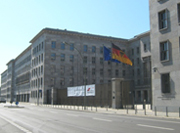 The German Federal Ministry of Finance (BMF) has recently published a draft law on the prevention of risks and abuses in computer-based algorithmic high-frequency trading, after the coalition had agreed to first outlines for regulating the controversial practice. According to the Ministry’s draft, in future all market participants who are admitted to superfast high-frequency trading on a German stock exchange or multilateral trading system should come under the Banking Act (KWG) and the Securities Trading Act (WpHG) and in the future be supervised by the Federal Financial Supervisory Authority (BaFin). This would ensure enhanced monitoring by the regulators. Market-manipulating strategies such as continual price inquiries with no real intention to trade should be banned. The central criticism of high-frequency trading by the government and other market observers is that the computers can by their speed fuel stock market trends and thus disrupt the market and thereby cause major fluctuations or price collapses.
The German Federal Ministry of Finance (BMF) has recently published a draft law on the prevention of risks and abuses in computer-based algorithmic high-frequency trading, after the coalition had agreed to first outlines for regulating the controversial practice. According to the Ministry’s draft, in future all market participants who are admitted to superfast high-frequency trading on a German stock exchange or multilateral trading system should come under the Banking Act (KWG) and the Securities Trading Act (WpHG) and in the future be supervised by the Federal Financial Supervisory Authority (BaFin). This would ensure enhanced monitoring by the regulators. Market-manipulating strategies such as continual price inquiries with no real intention to trade should be banned. The central criticism of high-frequency trading by the government and other market observers is that the computers can by their speed fuel stock market trends and thus disrupt the market and thereby cause major fluctuations or price collapses.
People
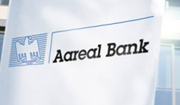 Marija Korsch has moved with immediate effect to the Supervisory Board of Aareal Bank, as the Wiesbaden district court met a request by the Board of the Wiesbaden real-estate financier. The experienced banking expert was until 2008 a partner at the Metzler seel. Sohn & Co. Holding bank, where she was responsible for Corporate Finance Business. She replaces Wolf R. Thiel.
Marija Korsch has moved with immediate effect to the Supervisory Board of Aareal Bank, as the Wiesbaden district court met a request by the Board of the Wiesbaden real-estate financier. The experienced banking expert was until 2008 a partner at the Metzler seel. Sohn & Co. Holding bank, where she was responsible for Corporate Finance Business. She replaces Wolf R. Thiel.
At Celesio, with Wolfgang Mähr the last executive from the era of Fritz Oesterles goes. The manager, responsible for wholesale business, will leave the Stuttgart firm at his own request on 30 September, when his contract runs out, the pharmaceutical wholesaler reported on 29 June. A few weeks ago there were reports of a management dispute, in which Mähr had drawn the consequences.
 With effect from 1 July Michael Brecht has been newly appointed employee representative to the Daimler Supervisory Board. The Stuttgart district court here followed a request by the company. He succeeds Stefan Schwaab, who retired on 30 June.
With effect from 1 July Michael Brecht has been newly appointed employee representative to the Daimler Supervisory Board. The Stuttgart district court here followed a request by the company. He succeeds Stefan Schwaab, who retired on 30 June.
Mannheim District Court has at the request of HeidelbergCement expanded the company‘s Supervisory Board and appointed Professor Marion Weissenberg-Eibl a member, as shareholder representative. The Merkel advisor is the successor to the retired Herbert Lütkestratkötter, it was reported on 4 July. He had resigned his post on 14 March for personal reasons.
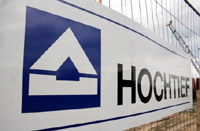 Christine Wolff has been proposed to Essen District Court as new Supervisory Board member at HOCHTIEF. The 51-year-old was most recently Senior Vice-President, Managing Director Europe and Middle East (EMEA) for the URS Corporation. Eggert Voscherau had resigned his Supervisory Board post at the construction company for personal reasons on 30 June. He had been a member of the supervisory body since 2011.
Christine Wolff has been proposed to Essen District Court as new Supervisory Board member at HOCHTIEF. The 51-year-old was most recently Senior Vice-President, Managing Director Europe and Middle East (EMEA) for the URS Corporation. Eggert Voscherau had resigned his Supervisory Board post at the construction company for personal reasons on 30 June. He had been a member of the supervisory body since 2011.
Uwe Lüders resigned his post at Nordex on 2 July with immediate effect. As a reason for his withdrawal, he cited the extra burden of rehabilitating the Manroland web-offset printing-press maker recently acquired from L. Possehl & Co. mbH. Lüders is CEO of the Lübeck conglomerate. Wolfgang Ziebart will be the new chairman of the Supervisory Board. He has been a member of it since 2009.
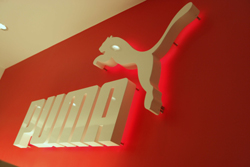 At PUMA Klaus Bauer wants “for reasons of personal life-planning” to go by the end of the year. His successor for Operative Business will be Michael Lämmermann, who currently heads the Finance Division. Antonio Bertone will also leave the sporting-goods manufacturer at the end of the year. For the sales executive no successor has yet been determined.
At PUMA Klaus Bauer wants “for reasons of personal life-planning” to go by the end of the year. His successor for Operative Business will be Michael Lämmermann, who currently heads the Finance Division. Antonio Bertone will also leave the sporting-goods manufacturer at the end of the year. For the sales executive no successor has yet been determined.
A year after the departure of Angelika Dammann, SAP has newly filled the vacant personnel spot on the Management Board. Luisa Deplazes Delgado, currently CEO and chairman at Procter & Gamble Nordic, comes to Walldorf in September, to assume the office of Labour Director and to be Human Resources Executive. Previously, the 45-year-old headed the HR department in the company for seven years as Vice-President.
Michael Frenzel is stepping down from his CEO post at TUI on 13 February 2013 after 19 years. His contract was renewed as late as mid last year for two years until March 2014. He is succeeded by Friedrich Joussen. The current Vodafone Germany CEO joins the Board of the travel company on 15 October, and will then become the new CEO on 13 February 2013.
Campus
Standard Code does not make sense for family businesses
 Each family company is different, so it did not make sense, as for public companies, to apply a standardized code of governance, said Professor Peter May in an address to family shareholders in Mannheim. The Governance Code was a kind of checklist by means of which governance in a family business could be configured professionally, stated the Chairman of the Presidium of the Commission on a Governance Code for family businesses. Besides suggestions for succession planning, he showed as a guideline how conflicts in the owning family can be avoided. The family members themselves would however have to develop a code, followed by corporate and inheritance contracts. In the Code for family businesses the Commission, consisting of 27 family entrepreneurs and scholars, has under the initiative of INTES and the Association DIE FAMILIENUNTERNEHMER – ASU developed guidelines for the responsible management of family businesses. Thus, it recommends clear criteria for the admission of family members into the management and the establishment of oversight committees. It has also formulated guidelines for the right amount of dividends and reinvestments. For instance, in so-called cousin consortiums like Porsche/Piëch there are interactions whereby old conflicts are transferred to the next generations. The Code can be found, in German only, at Code-for-familienunternehmen.de.
Each family company is different, so it did not make sense, as for public companies, to apply a standardized code of governance, said Professor Peter May in an address to family shareholders in Mannheim. The Governance Code was a kind of checklist by means of which governance in a family business could be configured professionally, stated the Chairman of the Presidium of the Commission on a Governance Code for family businesses. Besides suggestions for succession planning, he showed as a guideline how conflicts in the owning family can be avoided. The family members themselves would however have to develop a code, followed by corporate and inheritance contracts. In the Code for family businesses the Commission, consisting of 27 family entrepreneurs and scholars, has under the initiative of INTES and the Association DIE FAMILIENUNTERNEHMER – ASU developed guidelines for the responsible management of family businesses. Thus, it recommends clear criteria for the admission of family members into the management and the establishment of oversight committees. It has also formulated guidelines for the right amount of dividends and reinvestments. For instance, in so-called cousin consortiums like Porsche/Piëch there are interactions whereby old conflicts are transferred to the next generations. The Code can be found, in German only, at Code-for-familienunternehmen.de.
German corporations win strong marks for transparency
 In a study by Transparency International on visibility in the business of the 105 largest publicly traded multinational companies, all the seven German firms end up in the top third. Far ahead in the transparency list are BASF (7) and Allianz (10). The insurer stands out positively from most other financial corporations in the world. Also evaluated were Siemens (17), Bayer (24), Deutsche Telekom (29), E.ON (30), and SAP. The software giant is ranked number 35, taking up the German rear. Overall, large international companies are still working too much in secret and informing the public only insufficiently about their businesses, criticized the anti-corruption organization. On an international comparison Germans reveal relatively much about their activities. The rating of companies was based on publicly available information from them on their anti-corruption programmes, information on subsidiaries, the percentage share in these and the country of registration, and information by country on sales, investments, profit before tax, income tax and expenditure on social issues.
In a study by Transparency International on visibility in the business of the 105 largest publicly traded multinational companies, all the seven German firms end up in the top third. Far ahead in the transparency list are BASF (7) and Allianz (10). The insurer stands out positively from most other financial corporations in the world. Also evaluated were Siemens (17), Bayer (24), Deutsche Telekom (29), E.ON (30), and SAP. The software giant is ranked number 35, taking up the German rear. Overall, large international companies are still working too much in secret and informing the public only insufficiently about their businesses, criticized the anti-corruption organization. On an international comparison Germans reveal relatively much about their activities. The rating of companies was based on publicly available information from them on their anti-corruption programmes, information on subsidiaries, the percentage share in these and the country of registration, and information by country on sales, investments, profit before tax, income tax and expenditure on social issues.
Capital News
 On 28 June Commerzbank increased its capital by 176,553,636 shares or euros. With the help of Deutsche Bank, 128.3 million shares which it had issued instead of cash payments to the managers were placed on the market at €1.27 each. The measure would strengthen the Bank‘s hard-core capital with an eye to the stringent regulatory requirements of Basel 3, said the second-largest German bank. The federal government, even after the recent capital increase, remains the biggest individual shareholder, with slightly more than 25 percent. Martin Blessing had announced the measure in January. The Commerzbank CEO sees himself confirmed in his course; the high approval rate of employees was a strong message of solidarity, he said.
On 28 June Commerzbank increased its capital by 176,553,636 shares or euros. With the help of Deutsche Bank, 128.3 million shares which it had issued instead of cash payments to the managers were placed on the market at €1.27 each. The measure would strengthen the Bank‘s hard-core capital with an eye to the stringent regulatory requirements of Basel 3, said the second-largest German bank. The federal government, even after the recent capital increase, remains the biggest individual shareholder, with slightly more than 25 percent. Martin Blessing had announced the measure in January. The Commerzbank CEO sees himself confirmed in his course; the high approval rate of employees was a strong message of solidarity, he said.
 On 17 July LANXESS started a buyback of 220,000 of its own shares in order to issue them to employees. According to indications from the chemical group on 16 July the purchase price (excluding incidental costs) should not be more than ten percent above or below the market price determined on the same day in the opening auction of the Xetra trading on the Frankfurt Stock Exchange. The share buyback was concluded on 27 July. Overall, the programme should cost LANXESS about twelve million euros.
On 17 July LANXESS started a buyback of 220,000 of its own shares in order to issue them to employees. According to indications from the chemical group on 16 July the purchase price (excluding incidental costs) should not be more than ten percent above or below the market price determined on the same day in the opening auction of the Xetra trading on the Frankfurt Stock Exchange. The share buyback was concluded on 27 July. Overall, the programme should cost LANXESS about twelve million euros.
Director's Dealings
| Company | Person | Function | Buy / Sell | Total value in Euro | Number of shares | Date |
| BASF | Dr. Hans-Ulrich Engel | MB | B | 107.760 | 2.000 | 29.06.2012 |
| COMMERZBANK | Hans Hermann Altenschmidt | SB | B | 7.714 | 6.370 | 02.07.2012 |
| COMMERZBANK | Astrid Evers | SB | B | 6.743 | 5.568 | 02.07.2012 |
| COMMERZBANK | Astrid Evers | SB | S | 7.018 | 5.568 | 02.07.2012 |
| COMMERZBANK | Daniel Hampel | SB | B | 2.112 | 1.744 | 02.07.2012 |
| COMMERZBANK | Beate Ursula Hoffmann | SB | B | 2.640 | 2.180 | 02.07.2012 |
| COMMERZBANK | Silke Tschäge | B | 5.412 | 4.469 | 02.07.2012 | |
| COMMERZBANK | Silke Tschäge | S | 5.633 | 4.469 | 02.07.2012 | |
| COMMERZBANK | Uwe Tschäge | SB | S | 16.800 | 13.328 | 02.07.2012 |
| COMMERZBANK | Uwe Tschäge | SB | B | 16.141 | 13.328 | 02.07.2012 |
| COMMERZBANK | Karin van Brummelen | SB | B | 6.001 | 4.955 | 02.07.2012 |
| Daimler | Andreas Renschler | MB | B | 156.974 | 3.970 | 30.07.2012 |
| Daimler | Andreas Renschler | MB | S | 1.378.250 | 37.000 | 26.07.2012 |
| Daimler | Andreas Renschler | MB | Exercising an Option | 1.272.800 | 37.000 | 26.07.2012 |
| Daimler | Dr. Thomas Weber | MB | S | 4.283.750 | 115.000 | 26.07.2012 |
| Daimler | Dr. Thomas Weber | MB | B | 486.070 | 12.290 | 30.07.2012 |
| Daimler | Dr. Thomas Weber | MB | Exercising an Option | 3.956.000 | 115.000 | 26.07.2012 |
| Daimler | Dr. Dieter Zetsche | MB-Head | B | 492.830 | 13.000 | 26.07.2012 |
| Daimler | Dr. Dieter Zetsche | MB-Head | S | 9.312.500 | 250.000 | 26.07.2012 |
| Daimler | Dr. Dieter Zetsche | MB-Head | Exercising an Option | 8.600.000 | 250.000 | 26.07.2012 |
| Deutsche EuroShop | Manfred Zaß | SB-Head | S | 76.824 | 2.500 | 19.-23.07.2012 |
| Deutsche Lufthansa | Dr. Christoph Franz | MB-Head | B | 188.122 | 21.480 | 26.06.2012 |
| Deutsche Wohnen | Uwe E. Flach | SB-Head | S | 14.868 | 1.062 | 27.07.2012 |
| Dialog Semiconductor | Jean-Michel Richard | MB | S | 20.150 | 1.300 | 02.07.2012 |
| Fresenius | Dr. Gerd Krick | SB-Head | Exercising an Option | 686.349 | 10.000 | 05.07.2012 |
| Gerresheimer | Hans-Jürgen Wiecha | MB | S | 702.552 | 17.900 | 17.07.2012 |
| GSW Immobilien | Dr. Jochen Scharpe | SB | S | 63.204 | 2.300 | 02.07.2012 |
| Kontron | Thomas Sparrvik | MB | B | 58.050 | 15.000 | 25.07.2012 |
| LEONI | Dr. Werner Rupp | SB-Head | S | 655.000 | 20.000 | 04.07.2012 |
| Linde | Mark Omar Diekmann | B | 6.894 | 60 | 11.07.2012 | |
| MTU | Thomas Dautl | SB | S | 64.450 | 1.000 | 27.07.2012 |
| MTU | Dr. Rainer Martens | MB | B | 99.215 | 1.925 | 03.07.2012 |
| Munich Re | Dr. Ludger Arnoldussen | MB | B | 26.638 | 243 | 29.06.2012 |
| Munich Re | Dr. Thomas Blunck | MB | B | 33.763 | 308 | 29.06.2012 |
| Munich Re | Georg Daschner | MB | B | 140.809 | 1.258 | 29.06.- 03.07.2012 |
| Munich Re | Dr. Torsten Jeworrek | MB | B | 50.973 | 465 | 29.06.2012 |
| Munich Re | Dr. Peter Röder | MB | B | 31.899 | 291 | 29.06.2012 |
| Munich Re | Dr. Jörg Schneider | MB | B | 24.445 | 223 | 29.06.2012 |
| Munich Re | Dr. Wolfgang Strassl | MB | B | 22.362 | 204 | 29.06.2012 |
| Munich Re | Dr. Nikolaus von Bomhard | MB-Head | B | 37.052 | 338 | 29.06.2012 |
| Munich Re | Dr. Joachim Wenning | MB | B | 34.530 | 315 | 29.06.2012 |
| QIAGEN | Roland Sackers | MB | S | 259.910 USD | 14.852 | 18.07.2012 |
| ThyssenKrupp | Guido Kerkhoff | MB | B | 200.738 | 15.150 | 06.07.2012 |
| Wacker Chemie | Franz-Josef Kortüm | SB | B | 30.000 | 600 | 25.07.2012 |
VIPsight Shareholders
in July
VIPsight Shareholder ID <click here>















